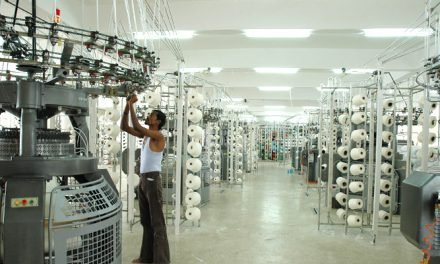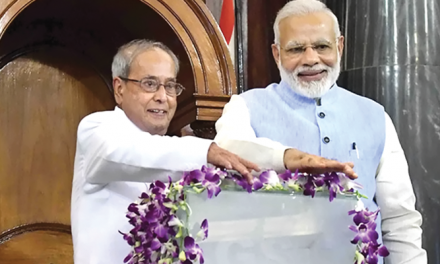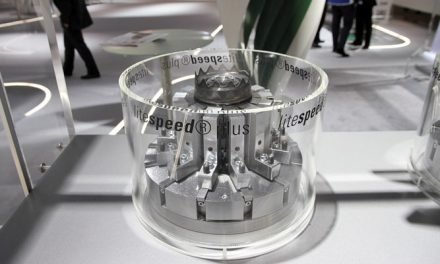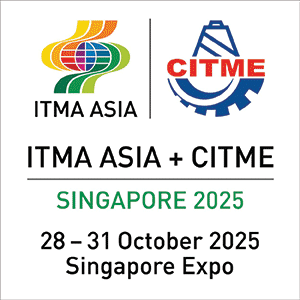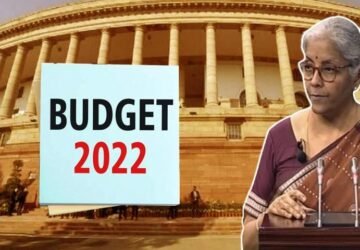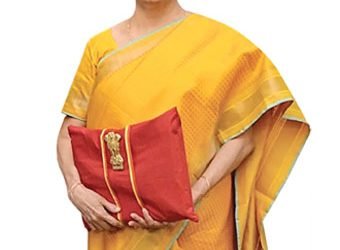 The Industry welcomed the Union Budget 2021-22 recently presented by Union Finance Minister, Nirmala Sitharaman, is encouraging and growth oriented.
The Industry welcomed the Union Budget 2021-22 recently presented by Union Finance Minister, Nirmala Sitharaman, is encouraging and growth oriented.
We hereby are covering the leading Association’s reaction on the same…
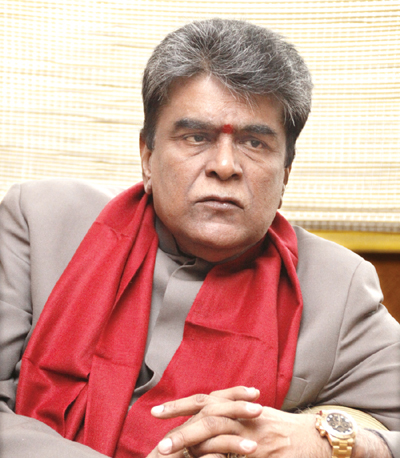
Dr. A Sakthivel, Chairman, Apparel Export Promotion Council (AEPC)
Apparel Export Promotion Council (AEPC) Chairman Dr. A Sakthivel welcoming the Union Budget 2021-22 presented by Hon’ble Finance Minister Nirmala Sitharaman recently, he said that the Budget takes care of all the sectors and will ensure robust economic recovery going forward.
“I sincerely thank the Hon’ble Finance Minister for taking care of all the sectors including the apparel sector. This is one of the finest budgets considering the current situation due to the coronavirus pandemic. All key sectors like health, agriculture, infrastructure, finance and skilling have been covered well. It will improve the economy,” Dr Sakthivel said.
The Chairman particularly thanked the government for the Budget decisions that will promote production and export of manmade fibre (MMF) based garments.
“Our main request was related to MMF garments and that has been considered by the government. The `10,683 cr Production Linked Incentive (PLI) scheme for MMF garments and technical textiles, along with new Mega Investment Textile Parks scheme for setting up seven textile parks in India over three years will bring in huge investment in the MMF sector,” Dr Sakthivel said.
The Chairman thanked the Ministry of Textiles for the encouragement given to the MMF garments. “The mega textile parks with plug-and-play facilities by the government will create global export champions. These will help in creating world class infrastructure in the textile sector, bring in investment, increase exports and provide employment.”
He said that the focus on infrastructure highways, railways and ports is a welcome decision as it will go a long way in improving the logistics and reduce the cost of doing business. Further, the rationalization of GST and customs will also help in easy access to raw materials and export of value added products.
“The reduction in custom duty on nylon will further promote the MMF garments,” said the Chairman, adding that the doubling of budget provision to Micro, Small and Medium Enterprises (MSME) sector with the allocation of `15,700 cr in the coming fiscal will strengthen the sector crucial for employment, manufacturing and exports.
Dr Sakthivel also lauded the announcements related to the shipping sector wherein an allocation of `1,624 cr has been made. A scheme to promote flagging of merchant ships in India will be launched by providing subsidy support to Indian shipping companies in global tenders floated by Ministries and CPSEs. “This will help in reducing our shipping costs,” he said.
The Chairman also welcomed the government’s decision to increase the capital expenditure to `5.54 lakh cr in FY’22 from revised estimate of `4.39 lakh cr in FY’21 saying it will prop up the economy by improving aggregate demand.

Rajesh Masand, President, The Clothing Manufacturers Association of India (CMAI)
The Clothing Manufacturers Association of India (CMAI) the Apex Association of the Apparel Industry of the Country has welcomed the Union Budget presented recently in the Parliament by the Hon’ble Finance Minister Nirmala Sitharaman.
Rajesh Masand, President, CMAI said that the announcement on the 7 Mega Textiles Parks was the highlight of the Budget directly impacting the Textile Industry. This is in line with the Government’s intention to encourage Mega Projects and increasing the scale of operations in the Textile Industry. This has to be applauded. A particular positive aspect of this scheme is the incorporation of Plug & Play Model which will enable the Members of such Parks to avoid huge Capital expenditure outlays.
Masand further stated that Lack of scale has been the bane of our efforts to increase our share in the Global Trade especially in the Apparel Sector. However, the Government also has to very closely study why the Textile Parks have not really succeeded in the past. It is very crucial to avoid errors of omission and commissions in the past. Otherwise, this will remain one better intended scheme which fails to lift the fortunes of the Textile Industry.
Masand also pointed out that the increase of import duty on cotton and cotton fiber may not impact the Industry too adversely since the current imports are at a miniscule level. However, this does come at a time when the industry is reeling from an unprecedented increase of raw material prices especially Yarn and could send a wrong signal.
In an indirect manner though, the Budget has made several announcements which will have a positive impact on Consumer spending – such as increases in infrastructure and overall Government Expenditure – and this will help the Industry, especially the Apparel sector.
The permission to form a One-person Company may also indirectly benefit the smaller Apparel manufacturers, many of whom are in the Micro sector and one-man shows. They are likely to get much more support from the Banking support than before. The increase of the Tax Audit slabs should also benefit the smaller members of the Apparel Sector.
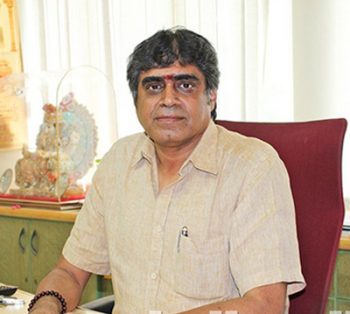 Raja. M. Shanmugham, President, Tirupur Exporter’s Association (TEA)
Raja. M. Shanmugham, President, Tirupur Exporter’s Association (TEA)
TEA President welcomed the Union Budget 2021-22 and noted that it is a pragmatic Budget presented to address all sectors issues at a time when our economy is getting revived back to normalcy. Raja. M. Shanmugham welcomed the Fund allocation to Roads and Highways Infrastructure facilities and specifically to Tamil Nadu State at an investment of `1.03 Lakh cr. Chennai – Salem Corridor: 277 Km Expressway will be awarded and construction would start in 2021-22.
While welcoming the launching of much talked Mega Investment Textiles Parks Scheme and establishing 7 Textiles Parks in the country over a period of 3 years with Plug and Play facilities, Raja. M. Shanmugham said as expected, this will enable to create global champions in exports and was hopeful that Tirupur exporters will opt to setup the units in these Parks.
Raja. M. Shanmugham was thankful for allocation of `700 cr for Amended Technology Upgradation Scheme (ATUFs) against `545 cr in last Budget, which will help to clear the pending Capital Subsidy. He appreciated the allocation of `30 cr for Export Promotion Studies against `5 cr in last Budget, a requirement to the industry to know the export potential available for specified products in the unexplored markets. He was also happy to note that allocation of `100 cr for Integrated Scheme for Skill Development, a need of the hour to the Textiles Industry.
On rationalization of duties on Raw Material to Man-Made Textiles, he welcomed the reduction of Basic Customs Duty on Nylon chips, Nylon Fibre and yarn, Caprolactam to 5 percent and this will help for the promotion of Textiles Industry and exports.
He lauded the allocation of `50,000 cr over five years for National Research Foundation to strengthen Eco system of the country and was hopeful that Tirupur would also get benefitted out of this allocation. He was thankful for allowing a new tax exemption for the notified Affordable Rental Housing Projects, which was requested by the Association in the Pre-Budget Memorandum to support for the migrant workers.
He welcomed the proposal to allow Women workers in all categories in the night shifts with adequate protection and reduction compliance burden on employers with single registration and licensing, and online returns. While welcoming the proposal to reduce the time limit for reopening of assessment for income tax proceedings from the present 6 years to 3 years, he said this will be helpful to the taxpayers to concentrate in their mainstream business.
 T Rajkumar, Chairman, Confederation of Indian Textile Industry (CITI)
T Rajkumar, Chairman, Confederation of Indian Textile Industry (CITI)
Welcoming the first paperless Budget presented by Union Finance Minister Nirmala Sitharaman in Parliament, the Confederation of Indian Textile Industry (CITI) has said it will lay a strong foundation for future growth of the textiles and clothing industry in India. However, the levy of 10 percent import duty on cotton has come as a severe blow, it added.
The announcement of setting up of seven textile parks within three years under the scheme Mega Investment Textile Parks (MITRA) will create world class infrastructure with plug and play facilities to enable create global champions in textile exports, CITI Chairman T Rajkumar said.
“The Production Linked Incentive (PLI) scheme for man-made fibres and technical textiles with a total outlay of Rs.10,683 cr will also help the textile industry to become globally competitive, attract large investments and boost employment generation. Moreover, to achieve the target of $350 bn from the current size of $167 bn, our manufacturing sector has to grow in double digits on a sustained basis. Our manufacturing companies need to become an integral part of global supply chains, possess core competence and cutting-edge technology,” Rajkumar said.
He pointed out that that the government well recognises the fact that the textile industry significantly contributes to the Indian economy and creates huge employment opportunities to the masses, especially to the poorer sections of the society majorly covering illiterate and down-trodden women. “To further enhance this scope and achieve the target of making Indian economy a $ 5-tr economy by 2025, reduction of customs duty on caprolactam, nylon chips and nylon fibre & yarn to 5 percent is step in the right direction. This will bring nylon chain on par with polyester and other man-made fibres.”
Rajkumar also welcomed rationalisation of exemption on import of duty-free items as an incentive to exporters of garments, leather, and handicraft items. “All these items are domestically produced in excellent quantity and quality by our MSMEs and help the textile industry and exports too,” he said.
“However, the levy of 10 percent import duty on cotton and cotton waste has come as a severe blow for the ailing cotton textiles and apparel industry,” they said. Cotton and cotton waste which is currently under nil rate of import duty is being subjected to 10 per cent import duty through the budgetary announcement comprising of 5 per cent Basic Customs Duty and another 5 per cent Agriculture Infrastructure and Development Cess (AIDC) on cotton and 10 per cent BCD on cotton waste.
Rajkumar appealed to the Prime Minister to consider the immediate withdrawal of the levy of 10 per cent import duty on cotton and cotton waste to sustain the global competitiveness of Indian textiles and apparel industry, and prevent job losses for several lakhs of people, prevent fall in the exports and also curb cheaper imports of value added products from the SAFTA countries like Bangladesh, Sri Lanka, etc.
The move of allowing women to work in all categories and also in the night-shifts with adequate protection, as well as the modified definition of small companies: companies with a paid-up capital not exceeding Rs.2 cr and a turnover not exceeding Rs.20 cr are to be considered small companies, implementation of the 4 labour codes, minimum wages to all categories of workers, and all will be covered by the Employees State Insurance Corporation (ESIC) are welcome decisions for the upliftment of Indian economy, CITI said.


